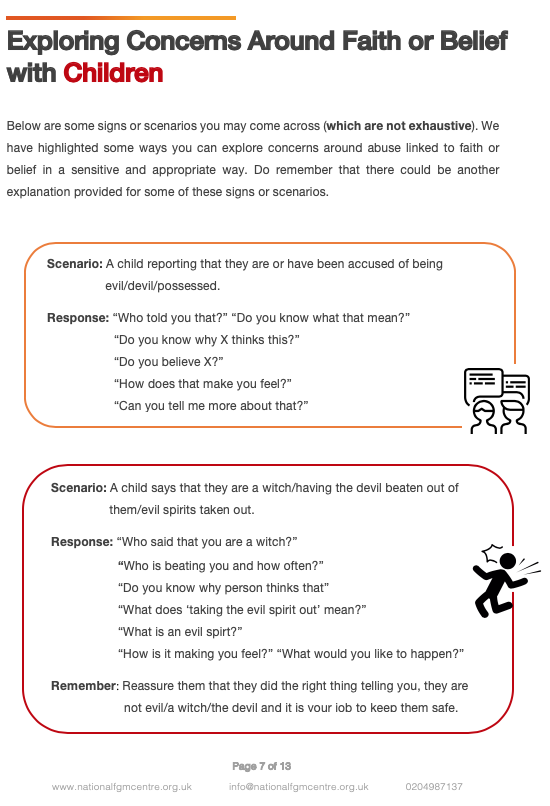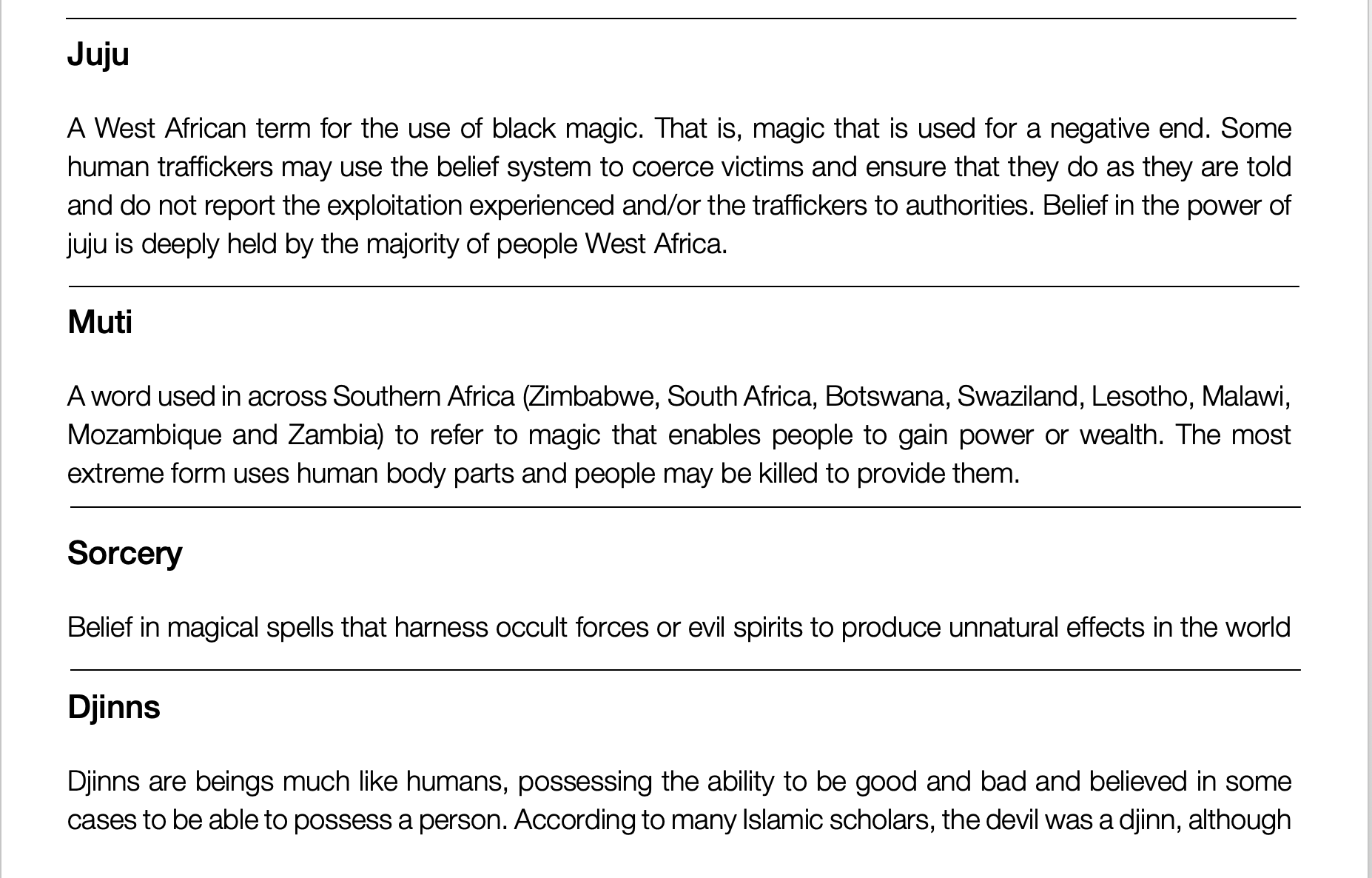CALFB: Resources for Exploring Concerns

Exploring Concerns around Spirit Possession, Witchcraft, and Ritualistic Abuse
The National FGM Centre have created four documents to support professionals in introducing conversations around faith or belief in order to set the foundation for exploring any concerns in the future. You can download copies and find out more below. If you would like training around this topic please contact us.
Exploring Concerns around Faith and Belief: Guidance for organisations working with children and families
This document provides an overview of spirit possession, witchcraft, and ritualistic abuse and provides useful advice and guidance to frontline professionals working with children and young people. The aim is to help frontline professionals develop the skills needed to engage in conversations with children and parents about faith and belief.
By developing the necessary skills and knowledge on this issue, professionals will have informed conversations when concerns arise about spirit possession, witchcraft, and ritualistic abuse.
Question Guide for Social Workers: Exploring faith or belief within an Assessment
Depending on the information shared in the referral, this question guide can be used by social workers to ensure that faith or belief is explored with families within a holistic assessment, to assess the impact faith or belief has on parenting practices and capacity.
Social workers should use their professional judgement regarding which questions are relevant and appropriate to ask.
Parent(s)/carer(s) are entitled to their beliefs. However, when these cross over into causing potential or actual harm to a child’s emotional/physical health, it is unacceptable and should be considered child abuse.
Question Guide for multi-agency professionals: Exploring culture, faith and belief within an assessment
This question guide can be used by multi-agency professionals to explore culture, faith, or belief with families within a holistic assessment of risk in any case of child protection.
It is important to make consideration to an individual and family’s home context as child-rearing beliefs and practices have strong associations with an individual’s culture, faith or belief, socioeconomic status, and immigration background. In order to understand a family holistically, it is important to consider parenting practices, and the ways in which culture, faith or belief has influenced an individual’s parenting. One way to do this is to ask families about their backgrounds.
Language and Terminology Guide: Spirit Possession, Witchcraft, and Ritualistic Abuse
This document contains terminology that may be used in accusations against children and some local examples (this is not an exhaustive list).
Exploring concerns about faith or belief with children: Infographic/poster
The document covers some signs and scenarios you may come across. We have highlighted some ways you can explore concerns around spirit possession, witchcraft, and ritualistic abuse in a sensitive way.
View recorded cases of spirit possession, witchcraft, and ritualistic abuse from around the world and local terminology and prevalence data in a countries with a blue dot.
Find out more about spirit possession, witchcraft, and ritualistic abuse on our ‘About Spirit Possession, Witchcraft, and Ritualistic Abuse’ page or head to our Spirit Possession, Witchcraft, and Ritualistic Abuse Resource page for videos, guidance and more.
Why Commission Us?
At the National FGM Centre, we pride ourselves on the quality and care of the services we provide to families, young people, and professionals. If you would be interested in finding out more about the services we offer, head to our ‘Commission Us’ section.
Commission us



